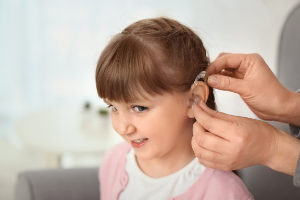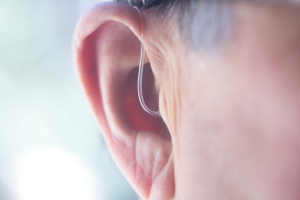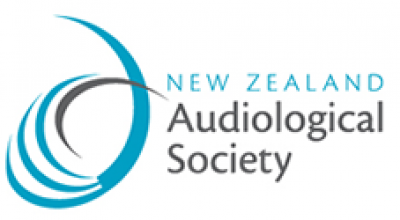


Funding Options for your Hearing Aids
Hearing aids for children with hearing loss are free. Adults have access to a variety of government subsidies, and may be able to get free hearing aids, or may need to contribute some of their own funds.
Children
Hearing aids for pre-schoolers and children at school, or up to 21 years of age if they are in full-time education, are funded by the Disability Support Services (DSS). Most children’s hearing aids are fitted through the public hospital system. Some private audiology clinics also fit them, but you may need to pay for this service.
Batteries, maintenance and repairs of hearing aids for children are provided free of charge by the Deaf Education Centres.
School-age children needing a remote microphone system to work with their hearing aids or for their auditory processing disorder may be funded through the Ministry of Education, while pre-schoolers with hearing aids needing a remote microphone system may get funding through the DSS.
More detailed information can be found on the Disability Support Services (DSS) website
Adults
Most adults are eligible for government help for hearing aids from Disability Support Services (DSS), and some are eligible through other sources such as ACC or Veterans' Affairs. Depending on what you are eligible for, you may be able to get free hearing aids, or you might need to contribute your own money towards their cost. Some Health NZ regions may provide adult hearing aid services, however most hearing aid services for adults are provided through the private sector.
Hearing Aid Subsidy Scheme (DSS)
All adults over 16 years old living in New Zealand with a permanent hearing loss who are New Zealand residents and who do not qualify for funding from other sources are eligible for a subsidy of $511.11 per hearing aid, once every six years.
More detailed information can be found on the Disability Support Services (DSS) website
Hearing Aid Funding Scheme (DSS)
Adult New Zealand residents over 16 years old with a permanent hearing loss who are living in New Zealand may be eligible for the Hearing Aid Funding Scheme, which covers the cost of your hearing aids if you meet one of these criteria:
- Have had a significant hearing loss since childhood
- Have both a hearing loss and another impairment that limits your ability to communicate safely and effectively e.g. visual, intellectual or physical.
- Have had a sudden significant hearing loss within the last six months
- Have a community services card and are either working more than 30 hours per week, in full-time study, seeking employment, engaged in voluntary work, or are the main carer of a dependent person
If you are accessing the Hearing Aid Funding Scheme through Health NZ, you won’t have anything to pay. If you are using a private audiology service, you will need to pay them a fitting fee for their time, because the Hearing Aid Funding scheme only covers the cost of the devices. You will not have to pay for repairs if your devices are funded under the scheme, but you will have to pay for batteries.
More information is available from the Disability Support Services (DSS) website or in the Guide to Getting Hearing Aids - Hearing Aid Funding Scheme
ACC
You may be eligible for ACC funding towards hearing aids if your hearing loss is the result of prolonged occupational noise exposure or a sudden trauma that has damaged your hearing. Your audiologist’s assessment should indicate if the hearing loss is the result of occupational noise damage. If you are likely to meet the criteria for ACC cover, your MNZAS audiologist or audiometrist can lodge a claim for you with ACC.
If ACC approves the claim you may be entitled to funding towards hearing devices, fitting fees and other costs. ACC hearing aid and fitting fee funding varies according to the level of injury-related hearing loss. ACC can also fund hearing aid batteries and contributes towards costs for servicing and repairs of your hearing aids.
Your ACC entitlement may mean you are able to get your hearing aids with no surcharge, or you may need to contribute some of your own money to get your preferred hearing aids. Your MNZAS Audiologist or MNZAS Audiometrist will talk you through your options.
If you feel you may have hearing loss due to prolonged noise exposure at work, please have an assessment completed. Your audiology provider can then determine if you would likely be a candidate for an ACC work-related claim.
More information is available from ACC
Veterans’ Affairs
If your hearing was damaged or you developed tinnitus while serving in the New Zealand Defence Forces you may be eligible for hearing aids and devices.
Eligibility depends on several factors, including whether you receive a war pension and the degree of disability.
If your claim is accepted, Veterans’ Affairs will pay for you to see an MNZAS Audiologist for an assessment, for your hearing devices and all your follow-up appointments, and for any servicing and repairs that are needed. You may receive a battery allowance for you to purchase batteries.
More information is available from Veterans’ Affairs
Work and Income NZ
Anyone who receives a benefit from Work and Income NZ can apply for a loan of up to $1000, depending on where you live, to help buy hearing aids. Loan repayments are deducted from future benefit payments.
More information is available from the Work and Income website
Public hospital services
Hospital audiology departments that provide adult hearing services will usually only provide hearing aids and services following referral from a health or educational specialist. Waiting lists depend on the hospital.
Depending on what government subsidies you are eligible for, there may be no charge for the services, or you may need to pay some of your own money towards hearing devices.
National Foundation for Deaf & Hard of Hearing
A Hearing Aid Fund has been created to assist New Zealanders with hearing loss who are facing financial hardship to purchase new hearing aids.
Apply for a Hearing Aid Fund Grant | NFDHH
Manawatu Hearing Aid Fund Grant | NFDHH
NZ Audiological Society Hearing Aid Fund
If you are in extreme financial difficulty and cannot get assistance from government agencies or elsewhere, the NZAS may be able to help. If you feel you meet these criteria, contact your audiologist or audiometrist for information.
Vincentian Foundation for the Elderly
The Foundation aims to improve the welfare of seniors and has a focus on grants of up to $300 to help fund hearing aids for those on low incomes. You must be aged 65+, hold a SuperGold card with community services endorsement, and have had your hearing assessed by an audiologist or audiometrist who is a member of the NZAS.
More information is available here
Other options
Some hospitals and private audiology practices may allow patients to repay the cost of hearing aids over time, or may have donated pre-used hearing aids they can loan or give to patients. These donated pre-used aids are generally a compromise and may not provide you with the desired benefits.

